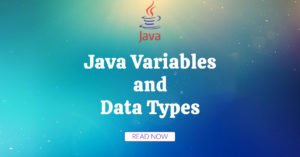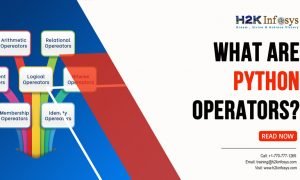The Business Intelligence Analyst Interview Questions blog post offers a comprehensive guide to prepare for your next BI analyst interview. It covers essential topics like data modeling, SQL proficiency, data warehousing concepts, and analytical problem-solving skills. Whether you’re a beginner or an experienced professional, this resource provides insightful questions and answers that reflect current industry trends. Learn how to articulate your experience with BI tools, interpret complex data sets, and demonstrate your ability to provide actionable business insights. Equip yourself with the knowledge needed to excel in interviews and secure your role as a Business Intelligence Analyst.
Top Business Intelligence Analyst Interview Questions
What is Business Intelligence?
Explanation: Business Intelligence refers to the strategies and technologies used by enterprises to analyze business information. It includes the processes of gathering, storing, and analyzing data from business operations to enhance decision-making.
Preparation Tip: Ensure you can explain BI in simple terms, focusing on how it helps businesses make informed decisions. Mention any specific BI tools you’ve used, such as Tableau, Power BI, or Looker, and discuss how these tools have enabled you to drive business strategy.
Describe your experience with data visualization tools.
Explanation: Data visualization tools are essential for transforming complex data sets into understandable, visual insights. Tools like Tableau, Power BI, and Google Data Studio allow BI Analysts to create interactive dashboards and reports.
Preparation Tip: Be prepared to discuss the tools you’ve worked with, specific projects where you used them, and how you leveraged these tools to solve business problems. If possible, mention any certifications you have in these tools.
How do you handle large datasets?
Explanation: Handling large datasets is a common task for BI Analysts. This involves not just analyzing data but also ensuring that data processing is efficient and accurate.
Preparation Tip: Discuss your experience with handling large datasets, including any techniques or tools you use to manage them. Mention if you’ve worked with big data technologies like Hadoop or Spark, and explain how you ensure data quality during analysis.
Explain a complex BI project you’ve worked on.
Explanation: This question assesses your problem-solving abilities and how you apply your BI skills in real-world scenarios.
Preparation Tip: Choose a project where you faced significant challenges and overcame them. Describe the project’s objective, the tools you used, the challenges you encountered, and the outcomes. Focus on the impact your work had on the business.
What are the key performance indicators (KPIs) you’ve used?
Explanation: KPIs are critical in measuring the success of business strategies. They are quantifiable measures that track performance against specific objectives.
Preparation Tip: Discuss the KPIs you’ve worked with, how you selected them, and how they aligned with business goals. Be ready to explain how you tracked and reported on these KPIs and the insights they provided.
How do you ensure data accuracy and integrity?
Explanation: Ensuring data accuracy and integrity is crucial in BI because decisions are made based on the data provided.
Preparation Tip: Explain your process for validating data, including any specific tools or methods you use to cleanse and verify data. Discuss how you handle discrepancies and ensure that the data you work with is reliable.
Describe your experience with SQL.
Explanation: SQL is the backbone of most data analysis tasks in BI. Proficiency in SQL is often a must-have skill for BI Analysts.
Preparation Tip: Be prepared to discuss your experience with SQL, including the types of queries you’ve written, databases you’ve worked with, and any advanced SQL techniques you’ve mastered. Mention any projects where SQL played a critical role.
How do you approach problem-solving in BI?
Explanation: Problem-solving is a core skill for BI Analysts, as they are often required to find solutions to complex data-related challenges.
Preparation Tip: Describe your problem-solving process, from identifying the problem to analyzing data and implementing a solution. Provide examples of specific problems you’ve solved and the methodologies you used.
What is ETL, and why is it important?
Explanation: ETL (Extract, Transform, Load) is a process in data warehousing that involves extracting data from different sources, transforming it into a suitable format, and loading it into a data warehouse.
Preparation Tip: Explain the ETL process, its importance in BI, and any experience you have with ETL tools like Talend, Informatica, or Apache Nifi. Discuss specific ETL processes you’ve managed and how they contributed to your BI projects.
How do you communicate your findings to non-technical stakeholders?
Explanation: A key part of a BI Analyst’s role is to convey complex data insights to stakeholders who may not have a technical background.
Preparation Tip: Provide examples of how you’ve successfully communicated data findings. Discuss your approach to simplifying technical jargon, using visual aids like dashboards, and tailoring your message to your audience.
Describe your experience with predictive analytics.
Explanation: Predictive analytics involves using historical data to predict future outcomes, which is valuable for strategic planning.
Preparation Tip: Discuss any predictive models you’ve worked on, the tools you used (such as R, Python, or SAS), and the impact your predictions had on business decisions. Be ready to explain the methodologies behind your models.
How do you prioritize multiple BI projects?
Explanation: Prioritization is crucial when managing multiple projects with potentially conflicting deadlines.
Preparation Tip: Discuss your prioritization strategy, such as how you assess project urgency and impact. Mention any project management tools you use, like Jira or Asana, to keep track of your tasks and deadlines.
What role does data governance play in BI?
Explanation: Data governance ensures that data is managed and used in compliance with policies and regulations, which is vital for maintaining data integrity and security.
Preparation Tip: Explain your understanding of data governance and how you’ve implemented governance frameworks in your BI projects. Discuss how you ensure compliance with regulations like GDPR or CCPA.
How do you stay updated with BI tools and trends?
Explanation: The field of BI is constantly evolving, with new tools and methodologies emerging regularly.
Preparation Tip: Mention any professional development activities you engage in, such as attending industry conferences, taking online courses, or participating in webinars. Highlight your commitment to staying current with the latest trends and technologies in BI.
Recommended To Read Also: Quality Assurance Courses Online
Why do you want to work for our company?
Explanation: This is your opportunity to show that you’ve done your homework on the company and align your career goals with their mission and values.
Preparation Tip: Research the company thoroughly before the interview. Discuss specific aspects of the company that appeal to you, such as their culture, products, or industry position. Connect these with your own career aspirations and how you see yourself contributing to their success.
Conclusion
Preparing for a Business Intelligence Analyst interview involves more than just brushing up on technical skills; it’s about demonstrating how you can leverage data to drive business decisions. By anticipating these common interview questions and formulating thoughtful, detailed responses, you can position yourself as a strong candidate ready to take on the challenges of the role.
Whether you’re just starting your career in BI or looking to advance to a more senior position, understanding the expectations of potential employers and preparing accordingly can make all the difference.
If you’re ready to take the next step in your BI career, start by refining your answers to these questions, and you’ll be well on your way to acing your interview.


























